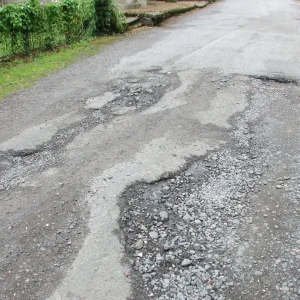The coronavirus pandemic may prompt a resurgence of interest in the company car – but many business travel arrangements will be altered forever.
That’s according to a new report by leasing company Alphabet GB, entitled ‘Fleet Streets: Accelerating changes to travel and transport in the UK’.
The report argues that trends which may have already been bubbling up in the UK have now been accelerated, and that fleet managers have work to do to keep up.
It states: “Covid-19 has accelerated changes that were starting to happen in every part of society, suggesting travel habits in the UK are likely to be changed forever.
“For fleet managers, these changes provide both challenges to existing ways of working, but huge potential opportunities to rethink how to operate.
“While every company will have their own ‘new normal’, it’s certain that flexibility will be critical in adapting to our changing cityscapes.”
While it says it is difficult to know which trends resulting from the pandemic will be short-term, and which will be longer-lived, the report quotes a prediction from the AA that the UK will see a permanent reduction in the demand for travel as people have become more adept at working from home.
However, what is clear, the report says, is that a growing number of people would like more freedom to choose their transport arrangements, with the company car looking increasingly popular again.
Explaining that there is increased interest in mobility passes and even electric scooters, the report adds: “The company car may also see a resurgence in popularity. Our research showed that nearly 37% of consumers would now consider using a company car following the pandemic, to enable them to travel in a safe way. Prior to the lockdown, many employees favoured a cash benefit.
“These changes are likely to remain for some time to come, and fleet managers will need to consider these preferences when building out their future mobility plans.”
The report is the latest to argue that reduced levels of pollution seen at the height of lockdown have encouraged wider favourability towards EVs, in an effort to maintain such levels.
It states: “The change in public perception provides the perfect platform for fleets to address their alternative drivetrain strategy.
“Fleet managers must examine the duty cycle of every single vehicle in the fleet, consider how it is being used and leverage that information as the basis to reshape the fleet to drive a better understanding of the benefits of EVs and PHEVs.
“Not only are the running costs substantially lower for battery electric vehicles compared to internal combustion engines, but there are also increased incentives available to help fleets save money by choosing electric.”
The report acknowledges that, where some company and employee travel patterns will not return to pre-pandemic levels, others will find the need for fleet transport greater than ever.
It states: “With an increased desire for private transport, providing company cars – as part of a shared fleet or dedicated to individual employees – may offer a great route to solving some of the changes to travel we are experiencing.
“It gets business back on the road, while also helping people to feel safe and comfortable when travelling.
“Businesses will need to build agility into their fleets to stay one step ahead. This is the time to consider how to invest to meet the changing needs of employees and customers and prepare for a flexible future.”
Commenting with the release of the report, Alphabet GB chief executive officer Nick Brownrigg said: “The pandemic has had a huge impact on people and businesses, fundamentally changing how we move around and use our cities. While we can’t be sure of the long-term impact, it’s clear a lot of these changes are here to stay, and for fleet managers flexibility becomes ever more important.
“At Alphabet, we are working closely with all our customers to help them navigate the new world. People are adopting new habits and behaviours so it’s key that digitalisation and sustainability are central to any fleet strategy.
“Now is the time for all of us to invest and meet the changing needs of employees and customers, so we can ensure everyone feels safe and confident when travelling to work.”





